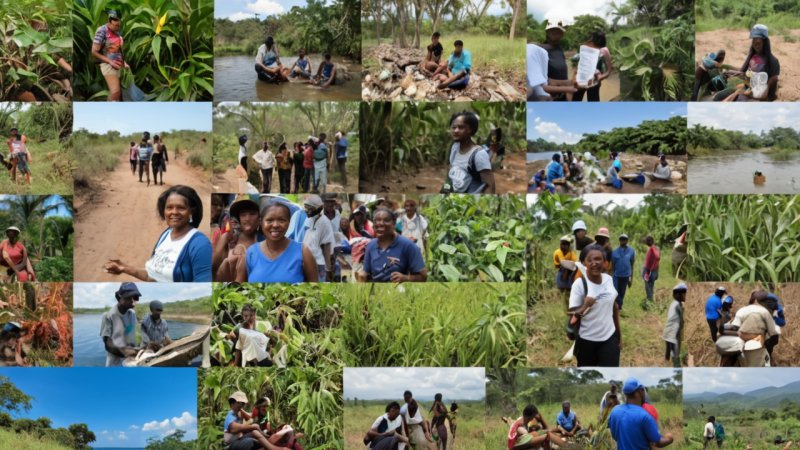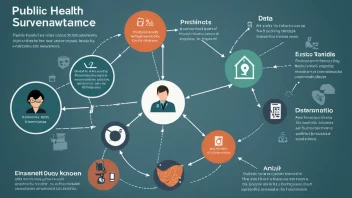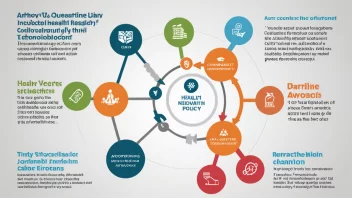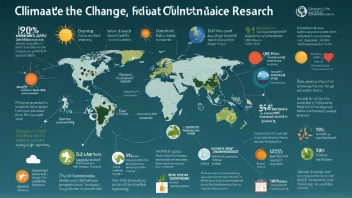In an era marked by unprecedented environmental challenges, the role of Non-Governmental Organizations (NGOs) dedicated to conservation has become increasingly vital. These organizations work tirelessly to protect ecosystems, promote sustainable practices, and advocate for policies that mitigate climate change and biodiversity loss. This article delves into the multifaceted contributions of environmental NGOs, exploring their strategies, successes, and the challenges they face in the quest for a sustainable future.
Understanding Environmental NGOs
Environmental NGOs are non-profit organizations that focus on issues related to the environment, conservation, and sustainable development. They operate independently of government influence, allowing them to advocate for environmental protection and sustainable practices without political constraints. These organizations vary widely in scope, from local grassroots groups to large international entities.
Types of Environmental NGOs
Environmental NGOs can be broadly categorized into several types based on their focus and methodology:
- Advocacy NGOs: These organizations primarily engage in lobbying efforts to influence policy and legislation. They work to raise awareness about environmental issues and advocate for stronger regulations and protections.
- Conservation NGOs: Focused on the protection of specific ecosystems, species, or natural resources, these organizations often engage in direct action, such as habitat restoration, species protection, and community engagement.
- Research NGOs: These groups conduct scientific research to inform conservation strategies and policy decisions. They often collaborate with academic institutions and government agencies to provide data and insights.
- Education NGOs: Aimed at raising public awareness and understanding of environmental issues, these organizations focus on outreach and education, providing resources and programs for schools and communities.
The Impact of Environmental NGOs on Conservation
Environmental NGOs have made significant contributions to conservation efforts worldwide. Their impact can be observed across various dimensions, including policy advocacy, community engagement, and scientific research.
Policy Advocacy
One of the most critical roles of environmental NGOs is their advocacy for stronger environmental policies. Through lobbying, public campaigns, and coalition building, these organizations work to influence legislation at local, national, and international levels. For instance, organizations like the World Wildlife Fund (WWF) and Greenpeace have played pivotal roles in shaping international agreements, such as the Paris Agreement on climate change.
Case Study: The Role of NGOs in the Paris Agreement
During the negotiations leading to the Paris Agreement in 2015, various environmental NGOs mobilized public support and provided critical research that highlighted the urgency of climate action. Their efforts helped to ensure that the voices of vulnerable communities and ecosystems were included in the discussions, ultimately leading to a more equitable agreement.
Community Engagement and Empowerment
Environmental NGOs often work directly with local communities to promote sustainable practices and empower individuals to take action. By providing resources, training, and support, these organizations help communities develop their conservation initiatives.
Example: Community-Led Conservation in Africa
In many African countries, NGOs have successfully implemented community-led conservation programs that involve local populations in wildlife protection and habitat restoration. These initiatives not only contribute to biodiversity conservation but also provide economic benefits to communities through ecotourism and sustainable resource management.
Challenges Faced by Environmental NGOs
Despite their significant contributions, environmental NGOs face numerous challenges that can hinder their effectiveness in conservation efforts.
Funding and Resource Limitations
Many environmental NGOs operate on limited budgets and rely heavily on donations, grants, and fundraising efforts. This financial instability can restrict their ability to implement long-term projects and respond to emerging environmental crises.
Political Resistance
In some regions, environmental NGOs encounter political resistance from governments that may prioritize economic growth over environmental protection. This resistance can manifest in restrictive regulations, censorship, or even hostility towards NGO activities.
Public Perception and Misinformation
Environmental NGOs often battle misinformation and skepticism regarding their motives and the science behind their initiatives. Building trust and credibility with the public is essential for these organizations to effectively advocate for change.
Innovative Strategies and Success Stories
Despite the challenges, many environmental NGOs have adopted innovative strategies to enhance their impact and achieve their conservation goals.
Leveraging Technology
Many NGOs are harnessing technology to improve their conservation efforts. For example, the use of satellite imagery and drones allows organizations to monitor deforestation, track wildlife populations, and assess habitat health more effectively.
Success Story: The Rainforest Foundation
The Rainforest Foundation has utilized satellite technology to monitor illegal logging activities in the Amazon rainforest. By providing real-time data to local authorities, they have successfully halted illegal operations and protected vast areas of forest.
Collaborative Approaches
Collaboration among NGOs, government agencies, and private sector stakeholders is becoming increasingly common. By working together, these entities can pool resources, share knowledge, and amplify their collective impact.
Example: The Ocean Conservancy
The Ocean Conservancy collaborates with various stakeholders, including fishermen, scientists, and policymakers, to address ocean health issues. Their collaborative approach has led to successful initiatives such as the International Coastal Cleanup, which mobilizes volunteers to clean up coastlines worldwide.
The Future of Environmental NGOs
As the urgency of environmental issues continues to grow, the role of environmental NGOs will be more crucial than ever. Their ability to adapt to changing circumstances, leverage technology, and engage communities will be vital in the fight against climate change and biodiversity loss.
Emerging Trends in Conservation
Several emerging trends are likely to shape the future of environmental NGOs:
- Increased Focus on Climate Justice: As climate change disproportionately affects marginalized communities, NGOs will increasingly advocate for climate justice, ensuring that vulnerable populations are included in decision-making processes.
- Integration of Indigenous Knowledge: Recognizing the value of traditional ecological knowledge, many NGOs are partnering with Indigenous communities to incorporate their insights into conservation strategies.
- Utilization of Citizen Science: Engaging the public in data collection and research can enhance conservation efforts. Many NGOs are adopting citizen science initiatives to involve communities in monitoring local ecosystems.
Conclusion
Environmental NGOs play a critical role in conservation efforts worldwide, advocating for policies, empowering communities, and conducting essential research. While they face numerous challenges, their innovative strategies and collaborative approaches offer hope for a sustainable future. As we move forward, the continued support and engagement of these organizations will be vital in addressing the pressing environmental issues of our time.






